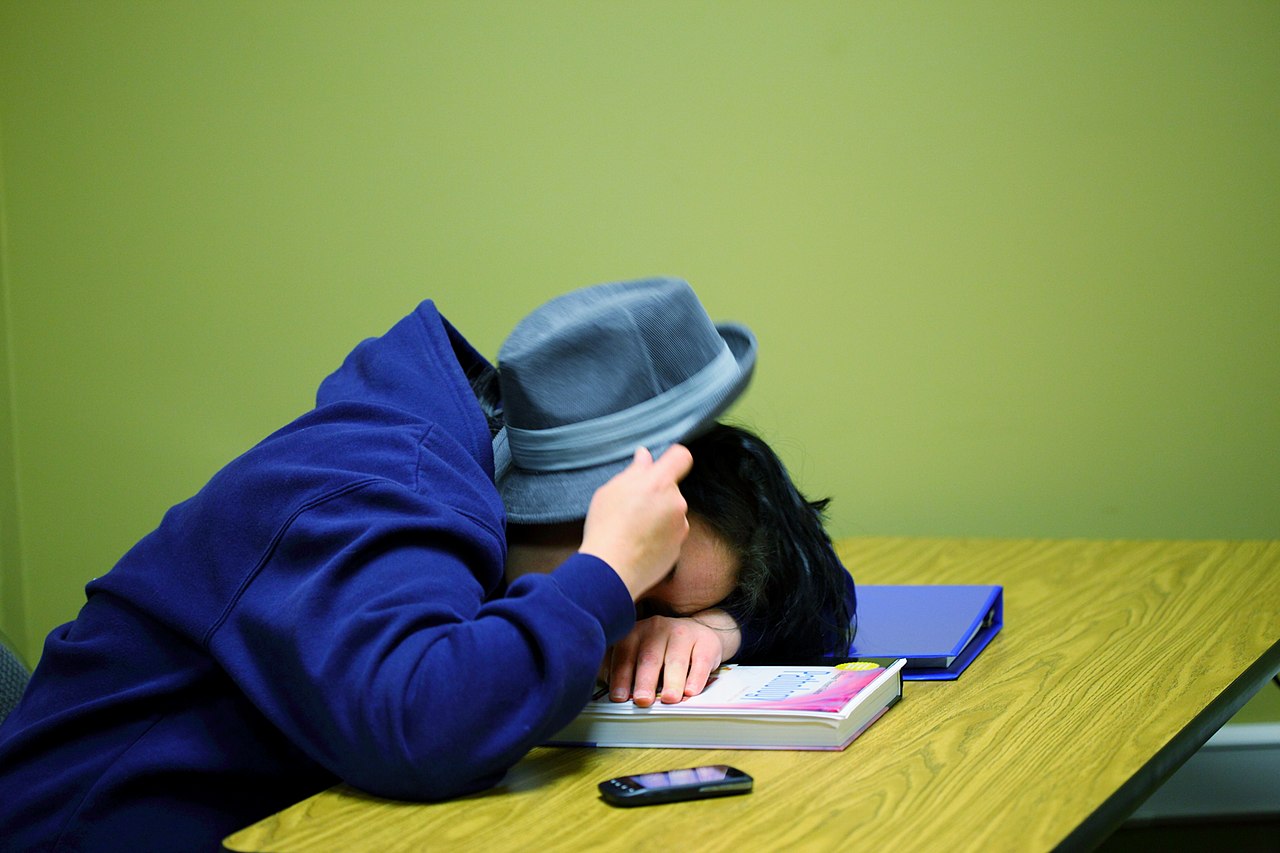After a long and exhausting day, the best thing for your mind and body is a good night of sleep. However, once the long-awaited hour comes, you instead begin to scroll through your Instagram feed to see whether your friend tagged you in their story or if you finally received that anticipated text from your crush. When you find the restraint to put your device down, the screen lights up again, and you pick it up, paying no heed to your parents’ monotonous advice on the importance of getting eight hours of sleep. Before you know it, you’ve become a prisoner to the virtual world inside of your phone. This increased sleep deprivation in our generation has been linked to poor mental health and academic performance.
After a couple of weeks passed this semester, I began to see how my classmates were coming into lectures late or not showing up at all. I also began to hear more and more students comparing their poor sleep schedules with their friends.
“Last night, I got a good solid three hours of sleep,” one would say. “I am running on energy drinks and coffee right now.”
“Oh, that’s nothing,” their friend would reply. “I pulled an all-nighter last night, and now I feel like I am on the verge of death.”
Upon hearing these conversations, I began reflecting on my sleeping habits and how poor they had also become since I started college. While they were not the best in high school, they had gotten worse since the beginning of my time at Wake Forest. I tend to go on my phone before bed every night, which results in a two-hour scroll through my Instagram feed or TikTok account. Not to mention that other factors can also affect your quality and amount of sleep, like strenuous extracurriculars and a heavy workload.
A good night’s sleep is essential for emotional and creative energy, as well as cognitive health, and it is one of the best ways to recharge the body and boost your mood. Although most college students know the importance of sleep, they continue to show up to class sleep-deprived. Although Wake does have quiet hours in place during the week for all on-campus housing and the ZSR library typically closes around 1 a.m., there are no strict curfews or norms that must be followed when night time comes like the ones at home.
Wake Forest’s measures are insufficient as they do not ensure that the students get their recommended eight hours of sleep every night. This is where the newfound freedom that most college students face presents some challenges. We begin to forget how important sleep is and how our parents’ suggestion of getting a good night’s sleep is essential for our well-being and health. Nonetheless, we must not deviate from a good nighttime routine when it comes time to replenish our energies.
For some people, an earlier bedtime or dinnertime will help them fix this issue; for others, like myself, it may require no screens at night and instead turning to books or meditation apps. Others may even turn their rooms into spa-like environments with calming colors and soft relaxing bedding and covers. It is also important to note the effect of factors such as diet and exercise on sleep. These three aspects of a college student’s life can be hard to manage at times due to an overwhelming workload and peer pressure. Nonetheless, we should prioritize our mental health and well-being. We must take control of our lives and choose to take the harder path that requires us to get our recommended eight hours of sleep instead of scrolling through TikTok or going out with our friends all night.












